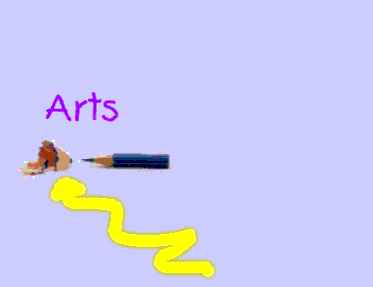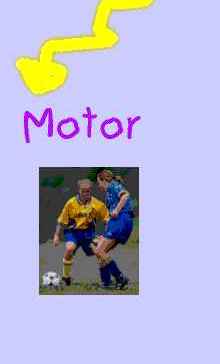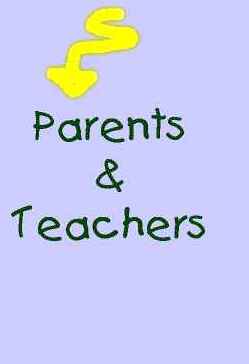|
Above advertising/sponsorship is provided by
"Angelfire.com" and may not represent my views.
|
|

|
| Back
to Today's Child
Back
to Guiding Self-Discipline |
|
Praising Praise |
|
"Everything you say and
do and don't say and don't do is a lesson"
...that includes praise. The
goal of this article is to get you, the reader, thinking about what a
child might be really hearing behind the words of praise that we give
them.
"Johnny, you
did very well. You are such a good boy."
That sounds nice, doesn't it? But what messages might you be sending
that you really do not want to be saying? If Johnny didn't do a good
job, does that make him a bad boy?
"Karen, that is
lovely. I am so proud of you." It feels good to have someone
proud of you, yes. But -- do I need to base my sense of
accomplishment on your pride? Should I only be proud of myself if
YOU are proud of me? How should I feel if you don't say you are
proud? And what if you aren't around to see what I do?
"Chris, nice
try, but here let me do it for you." Have we complimented the
child on the effort given? Does he feel like a success? Will he want
to try next time?
Every interaction we have
with children is teaching them about themselves. Praise can do
wonders for a child's self-esteem as well as his* understanding of what
are appropriate behaviours. However, as seen above, do we actually
send mixed messages? Are our compliments actually undermining what we
want to achieve?
"But My
Kid Doesn't Do Anything Well"
|
|
Ways to Praise
|
|
Showing an interest in a child's activities is indeed giving
praise. It is very rewarding to have someone
comment or ask questions about what you are doing, but above all
remember that it is the inner-reward, the self-appraisal, that is most
important.
|
- a pat on the back, hand on the shoulder
- a smile and friendly eye contact
- "I can see that you have really worked hard on
this."
- "I'd love to hear about what you have been doing.
"
- "This looks really interesting to me."
- "You put a lot of thought into this."
- "That is very creative! How did you decide to
do that?"
- "I'd like to try that too."
- "You did a great job."
- "That's different than your last one. How did
you change it?"
- "You must feel very proud."
|
|
If you feel good about what
you have done, does it matter how others feel about it?
|
|
|
Building
Self-Praise
wording physical eye contact role-modelling self-talk
Self-Rewards
are
very
rewarding!
|
Notice, in the above list, the line: "you must feel
very proud". These words guide the child to look inside, to assess
how she* feels. Instead of telling children how we feel about
their achievement we can get them to identify how they feel
themselves. Children are not born with an understanding of their
emotions. It is our role to help them identify how they are feeling and
to put a label to it. As parents and educators we do teach them about
"happy" and "sad" but why do we tend to not include
"pride"?
Our society, for whatever reasons, undermines the sense of pride.
It isn't polite to boast or brag. If someone pays you a compliment
you might respond with "it was nothing" or give excuses for
the success. But, by doing this we limit the boundaries of our self-esteem, as well as the desire to do one's best, to feel good about
what one does-- no matter who is watching.
I think this is the key -- to get children to do things
because THEY feel they are important, not just to please someone
else. And our actions can build this desire! Not only do we need to be
cautious as to how we respond to their actions but we also need to
demonstrate this skill by acknowledging our own accomplishments.
"I worked really hard on this. I am very proud of what I
accomplished." "I like how I made this work, how this
turned out." "I learned a lot from doing this. Next time
it will be even better." "Hmmm that didn't work the way I
thought it would, but I learned lots! That was a good
experience." "I can't wait to try this again. I
really enjoyed doing this."
|
| Once again, communication plays a key role in
our teaching/guiding of children. What do we really want to be
teaching them, and is what we are saying achieving this? Also, remember
that communication is 80% body language -- we need to be as aware of
what our eyes, facial expressions, and body language are saying as we
are the words we choose. Praise:
motivation, reward, satisfaction
Let it work for you--and for our children!
|
Web
Sites
|
|
|
|
Back
to Today's Child
copyright, 1999: Debbie Roswell 





|
But
My Kid Doesn't Do Anything Well |
| ...and the cycle continues!! When we
only see the negative, the negative keeps growing! Children need
attention; they crave it. And if 'doing well' isn't getting it,
they will find some other method of meeting their needs--and those
choices usually drive us crazy! I have facilitated so many groups
where parents have started 'catching their children doing something
good' and have acknowledged the behaviour. Miraculously, in
every case that I have heard, the good behaviours have increased in
number. |
But what should I look for??
- eating at the table
- taking shoes off at the door
- hanging a towel up
|
The good things seem to slip by without notice because it
is a relief to not have to deal with the behaviour. But sit back
without the blinders and really watch your child. See what he/she
really does throughout the day. Don't
take things for granted!
See it and praise it!
and remember...
"Tomorrow is our children's future.
Today is their present and tomorrow's yesterday.
Together we can create a great future and wonderful memories."
D. Roswell-P
<back> |
|